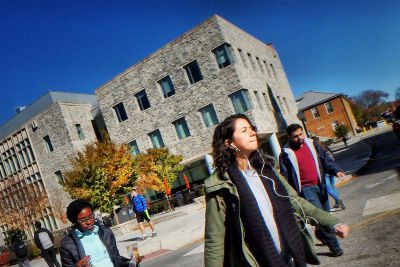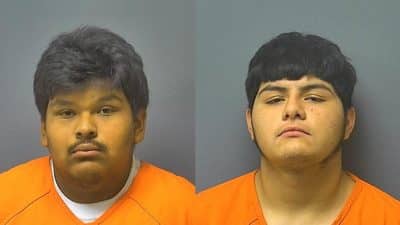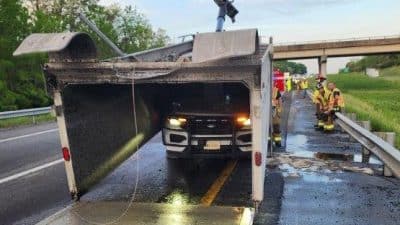
Sometimes, the way to take research in a new direction is to bring in a new perspective. That’s the motivation behind the Diversity and Inclusion Seed Investments Program from the Institute for Critical Technology and Applied Science.
The program, now accepting applications, provides small grants to Virginia Tech faculty members launching collaborations with colleagues at historically black colleges and universities (HBCUs) or other minority-serving institutions. Now in its fourth year, the awards have a track record of laying the groundwork for significant external funding.
Stefan Duma, the research institute’s director, explained that the seed-grant program is designed to deepen connections between Virginia Tech and HBCUs by helping to nurture long-term faculty partnerships that align with researchers’ existing interests.
“We’re giving faculty the tools to start to build robust collaborations that will enhance research programs at both universities,” said Duma, who is also the Harry C. Wyatt Professor of Engineering. “Those relationships harness the strengths of a diverse group of faculty in ways that will pay dividends for researchers — and their students — far beyond the term of the original grant.”
The awards offer $20,000 over two years to each team; the institute typically awards 15 new seed grants each year, maintaining around 30 funded partnerships.
Applications for this year’s round are due Oct. 29. Interested faculty should submit a one-page proposal describing the proposed collaboration; more information is available on the ICTAS website.
The idea is that these small awards will help the faculty involved strengthen their collaboration, collect initial data, and go on to co-write proposals for more substantial external funding.
So far, the strategy is panning out. Last year, faculty receiving these awards leveraged them into a collective $2 million in external funding — a tenfold return on Virginia Tech’s investment and a testament to the power of cross-university partnerships.
The program exemplifies one of ICTAS’ core principles: that even small amounts of funding, strategically directed at the right projects, can help innovative ideas and fledgling collaborations grow to the point where they can attract much heftier support.
The diversity and inclusion awards can cover shared equipment or technology, travel, or student support — items faculty might otherwise struggle to fund.
“Federal grants can’t necessarily be used to cover travel to another institution, or materials and supplies they need in order for them to do their research,” explained Chris Tysor, ICTAS’ diversity and inclusion coordinator, who runs the program. “That’s where this award can fill in the gaps.”
Over the past three years, the initiative has sparked collaborations with nearly 30 other institutions, in Virginia and across the country.
Tysor says she’s proud to play a role in helping faculty build these partnerships.
“It’s a small award, but if it allows them to visit their collaborators, or bring their collaborators here, or get these students into our labs and expand their network, then to me that’s worth it,” she said. “The fact that those faculty were able to receive larger federal grants — to me, that’s just icing on the cake.”
And though the funding specifically targets faculty-to-faculty partnerships, it has also contributed to the support of more than 100 undergraduate and graduate students at Virginia Tech and the partner institutions. These opportunities for students at HBCUs and minority-serving institutions to engage with research at Virginia Tech have been a boon for both the university’s overall research enterprise and its Beyond Boundaries initiative, one goal of which is to foster a more diverse and inclusive environment.
Faculty selected for ICTAS diversity and inclusion seed investments are asked to present their research at Virginia Tech’s HBCU/MSI Research Summit, an annual event hosted by the Graduate School to help faculty and students identify new partnership opportunities.
“I think there’s always been a need for more collaborations like this,” Tysor said. “We happened to show up at the right time with this program.”










